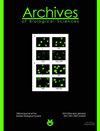Macromineral consumption by Pleurotus ostreatus var. Florida in different straws
IF 0.8
4区 生物学
Q4 BIOLOGY
引用次数: 0
Abstract
Organic agricultural waste is successfully used in the production of mushrooms as it promotes the reuse of resources and increases food production. For the formulation of the substrate for Pleurotus spp. production, the availability of nutrients must be rigorously analyzed to assess whether supplementation is necessary. The aim of this paper was to evaluate the agronomic behavior of Pleurotus ostreatus var. Florida when grown on different straws and to analyze nutrient dynamics at the beginning and end of cultivation. Straws of rice, wheat and brachiaria were used as substrates without any supplementation. The yields, biological efficiency, number and weights of mushrooms were evaluated in two crop cycles. Rice straw provided a higher yield, better biological efficiency and a greater number of mushrooms in both cultures. Wheat straw showed intermediate results for the same variables. None of the substrates showed a significant difference for mushroom weight. In the first crop, only Mg and the number of mushrooms exhibited a positive correlation; in the second crop, only K and the yield of the 1st flush showed a positive correlation. With this study, it was possible to demonstrate that agricultural residues with higher levels of K increase P. ostreatus yield, and that Mg management affects the number of mushrooms for harvesting. The results will be a useful guide for efficient and sustainable mineral supplementation of the substrate.佛罗里达侧耳菇在不同秸秆中的巨量矿物质消耗
有机农业废弃物被成功地用于蘑菇的生产,因为它促进了资源的再利用,增加了粮食产量。对于平菇生产底物的配方,必须严格分析营养物质的可用性,以评估是否需要补充。研究了佛罗里达平菇(Pleurotus ostreatus var. Florida)在不同秸秆上的农艺性状,并分析了栽培前后的养分动态。以水稻秸秆、小麦秸秆和臂尾鱼秸秆为底物,不添加任何添加剂。在两个作物周期中对蘑菇的产量、生物效率、数量和重量进行了评价。在两种培养中,水稻秸秆的产量更高,生物效率更高,蘑菇数量也更多。麦秸对相同的变量表现出中间结果。不同基质对蘑菇重均无显著影响。在第一季中,只有Mg与蘑菇数量呈正相关;在第二季中,只有K值与第一季的产量呈正相关。通过这项研究,有可能证明高钾水平的农业残留物增加了P. ostreatus的产量,Mg管理影响蘑菇的收获数量。研究结果将为有效和可持续地补充基质矿物质提供有益的指导。
本文章由计算机程序翻译,如有差异,请以英文原文为准。
求助全文
约1分钟内获得全文
求助全文
来源期刊
CiteScore
1.40
自引率
0.00%
发文量
25
审稿时长
3-8 weeks
期刊介绍:
The Archives of Biological Sciences is a multidisciplinary journal that covers original research in a wide range of subjects in life science, including biology, ecology, human biology and biomedical research.
The Archives of Biological Sciences features articles in genetics, botany and zoology (including higher and lower terrestrial and aquatic plants and animals, prokaryote biology, algology, mycology, entomology, etc.); biological systematics; evolution; biochemistry, molecular and cell biology, including all aspects of normal cell functioning, from embryonic to differentiated tissues and in different pathological states; physiology, including chronobiology, thermal biology, cryobiology; radiobiology; neurobiology; immunology, including human immunology; human biology, including the biological basis of specific human pathologies and disease management.

 求助内容:
求助内容: 应助结果提醒方式:
应助结果提醒方式:


